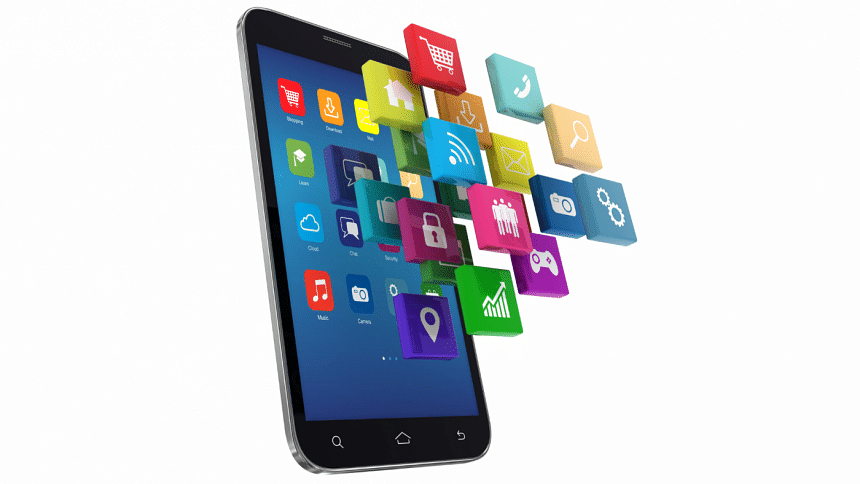Why is there an app for everything?

When I moved into a new apartment in the US earlier this month, I was greatly annoyed. The leasing office bombarded me with emails to download around five different types of apps to "fully immerse" myself into their ecosystem. One app was to gain points by completing surveys, one to turn my lights on and off with my phone, one to remind me of garbage collection days, and so on. I was initially motivated, but at the end of the week, the apps sat idly on my phone collecting dust, and by dust, I mean my personal data.
From match-making and tracking menstrual and sleep cycles to booking flights or knowing where your friends are, mobile apps are taking over our physical world from right under our noses. Although the increased participation of this technology in our daily lives hasn't gone unnoticed, the consequences of our growing dependence on these apps are not something we are well aware of.
The emergence of this culture of having an app for everything started years ago, right around the time when a large percentage of the population could afford smartphones. And although the mobile apps that took centre stage first assisted us in keeping track of things that we would otherwise have trouble with – like menstrual cycles, events, and meetings – the trend gave way for businesses and app developers to push seemingly meaningless applications to do things we could have done anyway. Now, we have around a thousand wallet apps that promise you financial management, clear your headspace, help you achieve body goals, etc. that are eager to digitise your life.
It's not just your personal life. It seems as if every single service you pay for comes with an app, be it the new bakery, a new TV, a restaurant, or the hospital. Maybe it made sense at first with the way our cell phones started becoming an extension of ourselves. Soon enough, however, it became an elaborate way for businesses to sell our data to third parties.
We hear about this all the time, but the extent to which our information is available to servers across the world is not very public. Seemingly harmless applications such as selfie-perfecting editors, weather apps, and many mobile games update your location as accurately as once every couple of minutes to third-party servers. The more information they have on you, the more they can augment their database of consumers and advertise to you
As the adage goes – if it is free, the product is you. Though these apps do inform users about their data collection policies in long-winded articles that everybody most definitely skims through, none say they're sharing it with a third-party. So, every time you download a new app to pay for one purchase, you're increasing the number of servers that have access to your birthdate, location, address, background, etc.
As consumers, rejection of this business model of launching an app for every new service can help us revert to a much more organic method of navigating the physical world around us, with lesser screen time, less reliance on devices, and more privacy. However, attempting to opt out of downloading these apps can be inconvenient for the user since many essential services don't have access options other than through their launched applications. What you can do instead, is go into your settings to opt out of overly intrusive ads on your phone. Both iOS and Android users can turn off personalised ads and limit ad tracking in their settings.
Koushin Unber's idea of having a productive summer is watching as many movies as she can for reviews. Send her better ideas at [email protected]

 For all latest news, follow The Daily Star's Google News channel.
For all latest news, follow The Daily Star's Google News channel. 








Comments